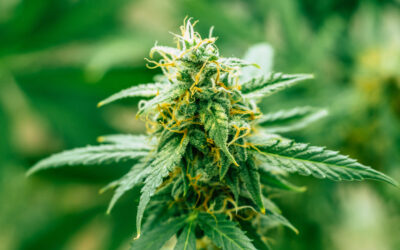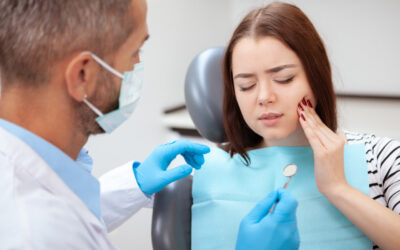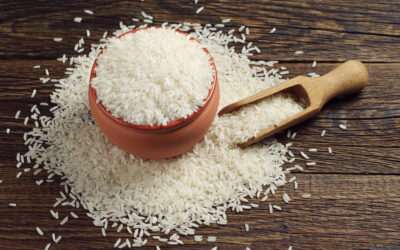How Long Does A Teeth Cleaning Take?

When it comes to the duration of a teeth cleaning, it can vary based on individual factors and the specific needs of each patient. On average, a teeth cleaning appointment typically lasts from 30 minutes to an hour. However, it’s important to note that this time frame can be shorter or longer depending on various factors. These factors include the extent of plaque and tartar buildup, the presence of dental issues, and the overall oral health of the individual.
Why is it Important to Get Your Teeth Cleaned and How Long Does a Teeth Cleaning Take?
Getting your teeth cleaned is important for several reasons:
- It helps remove plaque and tartar buildup, which can lead to tooth decay and gum disease.
- Regular cleanings can help detect and address oral health issues early on.
- Teeth cleaning improves the appearance of your smile and helps maintain fresh breath. It takes from 30 minutes to an hour.
Initial examination
During an initial dental examination:
- Dental x-rays may be taken to provide a comprehensive view of the teeth and underlying structures, helping to identify hidden issues.
- The dentist visually inspects the teeth and gums, checking for tooth decay, gum disease, and other dental issues.
- A discussion takes place where the dentist addresses the patient’s concerns, gathers dental history, and provides guidance or recommendations for future treatment or preventive care.
Steps Of Scaling and Tartar Removal
Dental hygienists are specially trained professionals who focus on preventive oral care. They possess in-depth knowledge of dental hygiene techniques, oral health education, and the tools required for effective scaling and tartar removal. The following are the typical steps taken during scaling and tartar removal:
1. Scaling the teeth
During scaling, dental professionals use specialized instruments like scalers and curettes to remove plaque and tartar from tooth surfaces.
This procedure effectively scrapes away hardened deposits without harming the teeth or gums. By eliminating plaque and tartar, scaling prevents tooth decay and gum disease, promoting better oral health and reducing the risk of dental problems.
2. Polishing the teeth
Polishing the teeth involves using a dental handpiece with prophy paste containing abrasive particles to remove surface stains and plaque. The handpiece, equipped with a soft rubber cup or bristle brush, is moved across the tooth surfaces to buff away debris, resulting in smoother and brighter teeth.
Flossing and interdental cleaning
Flossing and interdental cleaning are crucial for optimal oral hygiene:
- With dental professionals demonstrating the correct flossing technique.
- They guide patients in using dental floss to remove plaque and food particles between teeth and below the gumline.
- Dental professionals stress the importance of interdental cleaning to reach inaccessible areas, educating patients about the risks of neglecting it.
They encourage the use of interdental cleaning tools to prevent gum disease and tooth decay, promoting a comprehensive oral hygiene routine.
Fluoride Treatment
Fluoride treatment is an optional dental procedure that involves applying fluoride gel or varnish to strengthen the tooth enamel.
This helps prevent tooth decay and reduce the risk of cavities. It is particularly beneficial for individuals with higher risks of tooth decay, such as children, those with weakened enamel, or prone to dental caries. By reinforcing the enamel, fluoride treatment promotes better oral health and maintains strong, healthy teeth.
Oral Hygiene Instructions
During an oral hygiene appointment:
- Dental professionals educate patients on proper brushing techniques, emphasizing the use of a soft-bristled toothbrush and fluoride toothpaste.
- They discuss the benefits of mouthwash for reducing bacteria and reaching missed areas, recommending specific formulations when needed.
- Guidance on tongue cleaning is also provided to remove bacteria and prevent bad breath.
- Empowering patients with this knowledge, dental professionals promote effective plaque removal, fresh breath, and overall oral hygiene.
Final Examination and Recommendations
During the final examination:
- Dental professionals assess the teeth and gums to ensure effective oral health care.
- They identify any areas of concern, such as tooth decay, gum inflammation, or potential cavities.
- Based on these findings, personalized recommendations are given, including specific oral care techniques, improved hygiene practices, or scheduling future treatments.
Through this comprehensive approach, dental professionals empower patients to maintain and improve their oral health for the long term.
FAQs About Teeth Cleaning Procedures
Is the teeth cleaning procedure painful?
Teeth cleaning procedures are generally not painful. However, some individuals may experience slight discomfort or sensitivity during the process, particularly if they have sensitive teeth or gum disease. Dental professionals take measures to ensure patient comfort throughout the procedure.
Can I eat after my teeth cleaning procedure?
Yes, you can eat after your teeth cleaning procedure. It is generally recommended to wait for about 30 minutes to allow any fluoride treatment to fully take effect. Additionally, it is advisable to choose soft and non-staining foods immediately after the procedure to prevent any potential damage to the freshly cleaned teeth.
How long does a teeth cleaning take?
The duration of teeth cleaning can vary depending on the extent of plaque and tartar buildup, as well as other factors. On average, a teeth cleaning appointment typically lasts between 30 minutes to an hour. However, in cases of more severe buildup or underlying dental issues, it may take longer to ensure thorough cleaning.
Do teeth feel better after cleaning?
Yes, teeth often feel better after cleaning. Removing plaque, tartar, and surface stains can improve the smoothness of the tooth surfaces and contribute to a fresher feeling in the mouth. Additionally, addressing any underlying dental issues during the cleaning process can alleviate discomfort or sensitivity.
Does teeth cleaning hurt the first time?
Teeth cleaning procedures may cause mild discomfort or sensitivity, particularly during the first visit or if there is significant plaque or tartar buildup. However, dental professionals strive to minimize any discomfort and ensure a comfortable experience for patients.
Does teeth cleaning remove stains?
Yes, teeth cleaning can help remove surface stains caused by certain foods, beverages, and habits like smoking. However, deep or intrinsic stains may require additional treatments such as teeth whitening procedures to achieve desired results.
What age should you start cleaning your teeth?
Oral hygiene should begin as soon as the first tooth erupts. Parents can start cleaning their child’s teeth using a soft, damp cloth or an infant toothbrush. As more teeth emerge, a small amount of fluoride toothpaste can be introduced (under the guidance of a dentist) and brushing should be done twice a day.
Conclusion
The teeth cleaning process involves essential steps such as examination, scaling, polishing, and oral hygiene instructions to ensure optimal oral health. Regular dental visits are crucial for early detection, effective cleaning, and personalized guidance. By following these steps and maintaining routine check-ups, individuals can achieve and sustain optimal oral health, resulting in a confident and healthy smile.



